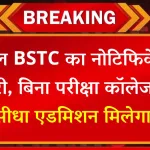The edudel syllabus is a meticulously designed educational framework provided by the Directorate of Education, Delhi. It aims to ensure that students in various public schools across Delhi receive a balanced, rigorous, and inclusive education. This guide will focus on the current academic year’s syllabus, offering insights into the structure, key learning areas, and the tools necessary for students to succeed.
Introduction to the Current Year’s Syllabus
The syllabus for this academic year has been curated to foster intellectual growth, critical thinking, and practical skills among students. It is crafted to meet the diverse needs of students, preparing them for further education and future career opportunities. Each subject under the edudel syllabus is broken down into various units or modules, each targeting specific competencies and knowledge areas.
Section-by-Section Breakdown and Key Learning Outcomes
1. Mathematics:
-
Units Covered: Algebra, Geometry, Trigonometry, Calculus
-
Skills Developed: Analytical thinking, problem-solving, logical reasoning
-
Examination Pattern: Mix of MCQs, short answer questions, and detailed responses, with a higher weightage given to problem-solving exercises.
2. Science (Physics, Chemistry, Biology):
-
Units Covered: Physical World, Matter, Organisms, Chemical Reactions
-
Skills Developed: Scientific inquiry, experimental skills, environmental awareness
-
Examination Pattern: Practical exams, lab reports, and theoretical exams including MCQs and long answer questions.
3. Social Sciences (History, Geography, Political Science):
-
Units Covered: Ancient Civilizations, Maps and Data, Government Systems
-
Skills Developed: Critical thinking, data interpretation, civic awareness
-
Examination Pattern: Emphasis on case studies, MCQs, and analytical essays.
4. English and Second Languages:
-
Units Covered: Literature, Language Use, Writing Skills
-
Skills Developed: Communication skills, literary analysis, creative and formal writing
-
Examination Pattern: Reading comprehension tests, oral presentations, written assignments.
Recommended Study Materials and Resources
For each subject, the edudel syllabus recommends specific textbooks approved by the NCERT along with supplementary materials like:
-
Online Platforms: Educational websites and apps for interactive learning experiences.
-
Reference Books: Additional books for deeper understanding of complex topics.
-
Multimedia Resources: Videos and documentaries to enhance learning.
Overview of Past Five Years’ Syllabi
Over the last five years, the syllabus has seen several adjustments to adapt to changing educational standards and technological advancements. Here’s a brief on how the syllabus has evolved:
-
2018-2019: Introduction of digital literacy modules.
-
2019-2020: Enhanced focus on environmental sciences.
-
2020-2021: Adaptations for remote learning during the pandemic.
-
2021-2022: Inclusion of more practical experiments in science subjects.
-
2022-2023: Increased emphasis on mental health and well-being.
Each year, adjustments were made to ensure that the syllabus remained relevant and comprehensive, addressing both academic and socio-emotional needs of the students.
Tips for Staying Organized and Preparing for Exams
-
Study Plan: Create a realistic study timetable that aligns with the syllabus and provides ample time for revision.
-
Organizational Tools: Utilize planners, apps, or digital calendars to keep track of important deadlines and exam dates.
-
Exam Strategies: Familiarize yourself with past papers and sample questions to understand the format and expectations of the examinations.
By understanding and navigating the edudel syllabus with these strategies, students can optimize their learning process and achieve their educational goals effectively. This guide aims to make the syllabus accessible and manageable, ensuring that students feel supported throughout their academic journey.
FAQ for edudel syllabus
1. What is the edudel syllabus? The edudel syllabus refers to the educational curriculum set by the Directorate of Education, Delhi for public schools in the region. It outlines the subjects and topics students are expected to learn during their academic year.
2. Where can I find the latest edudel syllabus? The most current version of the edudel syllabus can be accessed through the official Directorate of Education, Delhi website. It is regularly updated to reflect any changes or enhancements in the curriculum.
3. Are there any specific textbooks recommended for the edudel syllabus? Yes, the edudel syllabus usually specifies NCERT textbooks as the primary study material along with supplementary books recommended for deeper understanding of complex topics.
4. How is the edudel syllabus structured for high school students? For high school students, the syllabus is structured into various subjects including Mathematics, Science (Physics, Chemistry, Biology), Social Sciences (History, Geography, Political Science), and Languages. Each subject is further divided into units or modules that cover specific themes or topics.
5. What types of examination patterns are used in the edudel syllabus? The examination patterns may include multiple-choice questions (MCQs), short answers, and long essay-type questions. The pattern depends on the subject and the specific focus of the curriculum for that year.
6. How does the edudel syllabus accommodate students with special needs? The edudel syllabus includes adaptations and provisions to cater to students with special needs, ensuring inclusivity and accessibility in education. This might include modified assignments, tailored teaching methods, and additional support as necessary.
7. Are there any online resources recommended for supplementing the edudel syllabus? Yes, various online platforms and educational apps are recommended to supplement the traditional learning materials. These resources often include interactive lessons, quizzes, and video tutorials that align with the syllabus content.
8. What should I do if I find the syllabus challenging? If you find the syllabus challenging, it is advisable to discuss this with your teachers who can provide guidance, additional resources, or possibly tutoring. Peer study groups and online forums can also be beneficial.
9. How often is the edudel syllabus updated? The edudel syllabus is reviewed and potentially updated annually to incorporate the latest educational trends, technological advancements, and feedback from educational stakeholders.
10. Can parents get involved in understanding and supporting the edudel syllabus? Absolutely! Parents are encouraged to engage with the syllabus by attending school meetings, reviewing the course materials, and communicating regularly with teachers to better understand how they can support their child’s education at home.
These FAQs are designed to help students, parents, and educators get a clearer understanding of the edudel syllabus and maximize the educational opportunities it offers.
Latest Posts
- Step-by-step guide to download and apply for jee mains admit card 202
- Comprehensive 2025 government holidays and recruitment details for job seekers
- JEE Mains Admit Card 2025: Your Step-by-Step Guide to Downloading the Hall Ticket
- Everything You Need to Know About 2025 Government Holidays Recruitment
- Comprehensive Guide to rrb d group recruitment 2025 – Eligibility, Vacancies, and Application
- Detailed guide to nps trust recruitment 2025 vacancies, eligibility and apply process
- Comprehensive guide to hpcl recruitment 2025 notification, vacancies, and application process
- ignou bed admission 2025 complete recruitment guide with eligibility and process
- Comprehensive Guide to Indian Army Agniveer Recruitment 2025 Notification and Jobs
- Everything You Must Know About CBSE Board Exams 2025 Changes & New Rules






